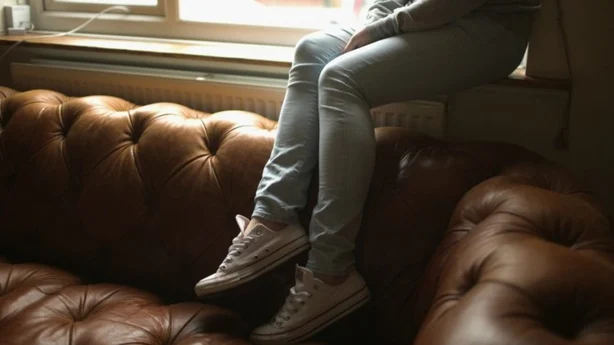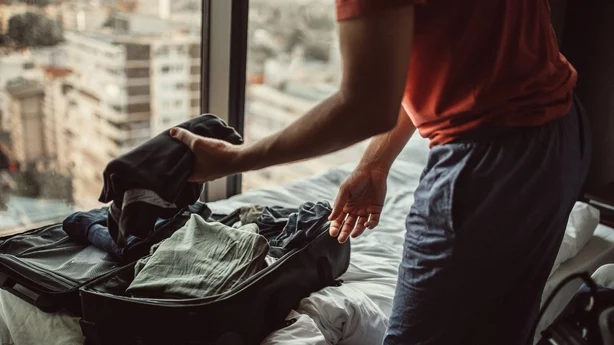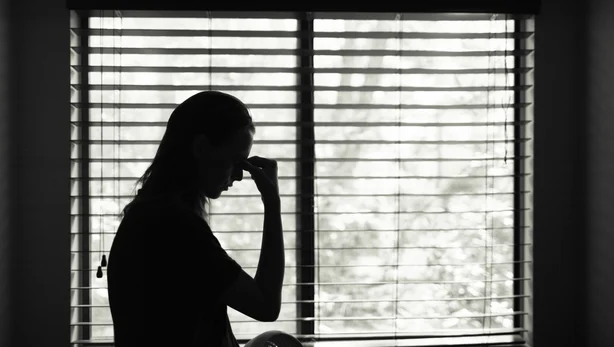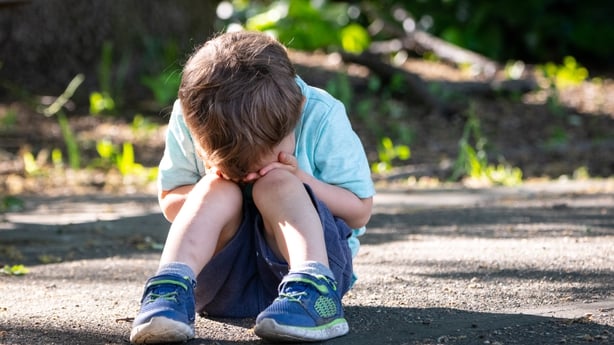Kathrina Bentley, CEO of Men's Aid, shares some advice for those preparing to leave an abusive relationship.
A personal safety plan is a way of helping you to protect yourself. It helps you plan in advance for the possibility of future violence and abuse. It also helps you to think about how you can increase your safety either within the relationship, or if you decide to leave.

You can't stop your partner’s violence and abuse - only they can do that. But there are things you can do to increase your own safety.
You 're probably already doing some things to protect yourself and your children - for example, there may be a pattern to the violence which may enable you to plan ahead to increase your safety.
Here are some things to keep in mind:
- Plan in advance how you might respond in different situations, including crisis situations.
- Keep with you any important and emergency telephone numbers (for example, domestic violence service; the local Garda Station; your GP; your social worker, if you have one; your solicitor;
- Teach your children to call 999 in an emergency and what they would need to say (for example, their full name, address and telephone number)
- Make a safety plan for your children and rehears this with them
- Are there neighbors’ you could trust, and where you could go in an emergency? If so, tell them what is going on, and ask them to call the gardaí if they hear sounds of a violent attack.
- Consider your legal rights as a father, if you are not married seek guardianship and custody from your local district court before you leave
- Rehearse an escape plan, so in an emergency you and the children can get away safely.
- Pack an emergency bag for yourself and your children, and hide it somewhere safe (for example, at a neighbors’ or friend’s house). Try to avoid mutual friends or family.
- Try to keep a small amount of money on you at all times – including change for the phone, taxi or bus fares.
- Know where the nearest phone is, and if you have a mobile phone, try to keep it with you.
- If you suspect that your partner is about to attack you, try to go to a lower risk area of the house – for example where there is a way out and access to a telephone. Avoid the kitchen or garage where there are likely to be knives or other weapons; and avoid rooms where you might be trapped, such as the bathroom, or where you might be shut into a cupboard or other small space.
- Be prepared to leave the house in an emergency.

Preparing to leave
Whatever coping strategies you have used – with more or less success – there may come a time when you feel the only option is to leave your partner.
If you do decide to leave your partner, it is best if you can plan this carefully. Sometimes abusers will increase their violence if they suspect you are thinking of leaving, and will continue to do so after you have left, so this can be a particularly dangerous time for you.
Plan to leave at a time you know your partner will not be around. Try to take everything you will need with you, including any important documents relating to yourself and your children, as you may not be able to return later.
Thinking about leaving and making the decision to leave can be a long process. Planning it doesn’t mean you have to carry it through immediately – or at all. But it may help to be able to consider all the options and think about how you could overcome the difficulties involved.
If at all possible, try to set aside a small amount of money each week, or even open a separate bank account.

What to pack if you are planning to leave your partner
Ideally, try to take all the following items with you if you leave. Some of these items you can try to keep with you at all times; others you may be able to pack in your emergency go bag:
- Some form of identification.
- Birth certificates for you and your children.
- Guardianship and custody paperwork if you are not married
- Passports (including passports for all your children), visas and work permits.
- Money, bankbooks, cheque book and credit and debit cards.
- Keys for house, car, and place of work. (You could get an extra set of keys cut, and put them in your emergency bag.)
- Cards for payment of welfare benefits you are entitled to.
- Driving license (if you have one) and car registration documents, if applicable
- You should also take any documentation relating to the abuse -e.g. Garda reports, court orders such as protection and safety orders, and copies of medical records if you have them.

Children need to have their own safety plan and to be a part of your safety plan.
- Teach children how to get help and how to be safe when you are being abused.
- Do practice runs including how to exit the house in different locations safely, and what to do if you are being abused (i.e. where to hide, who to call, etc.).
- Code words are also helpful in safety planning with children. Come up with code words for calling someone to help, or telling them to hide in their safe place, etc.
- If you have a good relationship with your neighbours, tell the children to run to their house when necessary, and to call the gardaí.
- They can also keep an overnight bag at the house for when they might need it.
For more information, visit Women's Aid, MensAid.ie, or for alternative helplines, visit www.rte.ie/helplines.
Disclaimer: The copyright of this article belongs to the original author. Reposting this article is solely for the purpose of information dissemination and does not constitute any investment advice. If there is any infringement, please contact us immediately. We will make corrections or deletions as necessary. Thank you.






